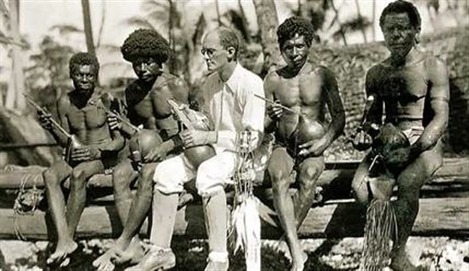A new (order) Ukraine? Assessing the relevance of Ukraine’s far right in an EU perspective
Friday, February 28, 2014
No comments
by Cas Mudde
The Euromaidan ‘revolution’ will undoubtedly remain one of the key political events of 2014. Most domestic and foreign observers were completely taken by surprise by the events that followed President Viktor Yanukovych’ decision not to sign an integration treaty with the European Union (EU) in November 2013. While the initial demonstrations in downtown Kiev were somewhat expected, few had ever thought that they could spiral so out of control that, just 3 months later, a democratically elected government with one of the most popular politicians in the country was forced out of power.
Euromaidan has also been interesting in terms of the propaganda battle that has been fought in the traditional and social media. As is now standard for ‘revolutions’ in the twenty first century, activists were quick to set up several Facebook pages, Twitter accounts, and other websites to provide their own positive view of the ‘revolution,’ countering the negative reports from the official Ukrainian media and, particularly, the largely Kremlin-controlled Russian media. They were very successful in disseminating their message, in part through networks of sympathizers in the west (including Ukrainian émigré communities in North America and post-Soviet scholars across the globe).
Euromaidan has also been interesting in terms of the propaganda battle that has been fought in the traditional and social media. As is now standard for ‘revolutions’ in the twenty first century, activists were quick to set up several Facebook pages, Twitter accounts, and other websites to provide their own positive view of the ‘revolution,’ countering the negative reports from the official Ukrainian media and, particularly, the largely Kremlin-controlled Russian media. They were very successful in disseminating their message, in part through networks of sympathizers in the west (including Ukrainian émigré communities in North America and post-Soviet scholars across the globe).
One of the main struggles has been over the importance of ‘fascists’ in the Euromaidan. Almost from the beginning the pro-Kremlin media emphasized the importance of ‘Ukrainian fascists’ among the anti-government demonstrators, and within days the whole uprising was to be portrayed as ‘fascist.’ This was to be expected, as both Soviet and post-Soviet Russian elites have tended to equate Ukrainian nationalism with fascism, linking any and every anti-Soviet or anti-Russian movement to the infamous Organization of Ukrainian Nationalists (OUN) of Stepan Bandera, which (temporarily) collaborated with Nazi Germany in a misguided attempt to gain Ukrainian independence from Stalin’s brutal Soviet regime.
At the same time, most domestic and foreign sympathizers of ‘Euromaidan’ have minimalized the importance of the far right, arguing that Euromaidan was a genuine democratic and pro-European uprising in which far right elements were insignificant.
Euromaidan became the latest cause of western celebrities, from Archbishop of New York Cardinal Dolan to actor George Clooney, and academics, from Andrew Arato to the inevitable Slavoj Žižek. Much more surprising, however, was that some of the same scholars who had been warning us against the rise of the far right in pre-Euromaidan Ukraine, were now scolding us for exaggerating the importance of the far right in Euromaidan.
Even worse, any specific emphasis on far right elements within Euromaidan would lead to “Russian imperialism-serving effects.” Arguing by and large that they should be the only ones to judge the situation in Ukraine, given that they were the (only) “experts on Ukrainian nationalism,” these scholars declared Euromaidan “a liberationist and not extremist mass action of civil disobedience.”
Now that the ‘revolution’ is supposedly won, and the EU is ready to embrace the new Ukrainian government, and invest at least one billion euros in the ‘revolutionized’ country, it is time to reinvestigate the question of far right influence in Ukraine. After all, the EU has always been an outspoken critic of far right parties and politicians. In fact, only last month EU Commissioner Cecilia Malmström declared publically: “The biggest threat [for the EU] right now comes from violent right-wing extremism.”





















































